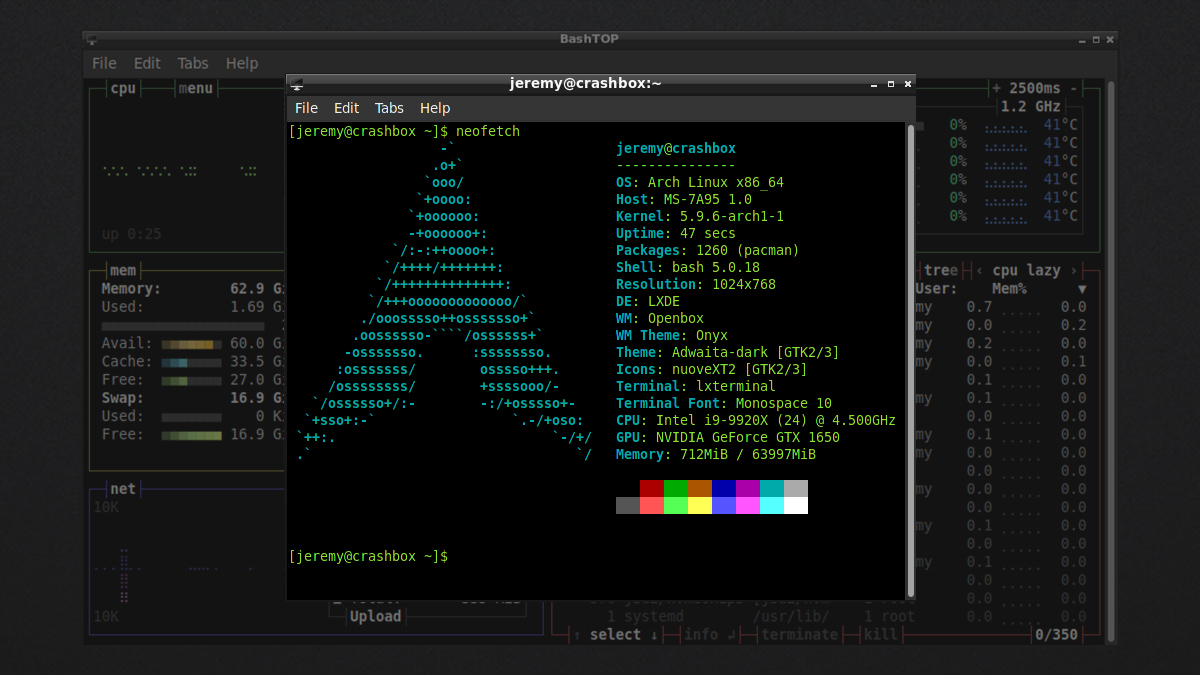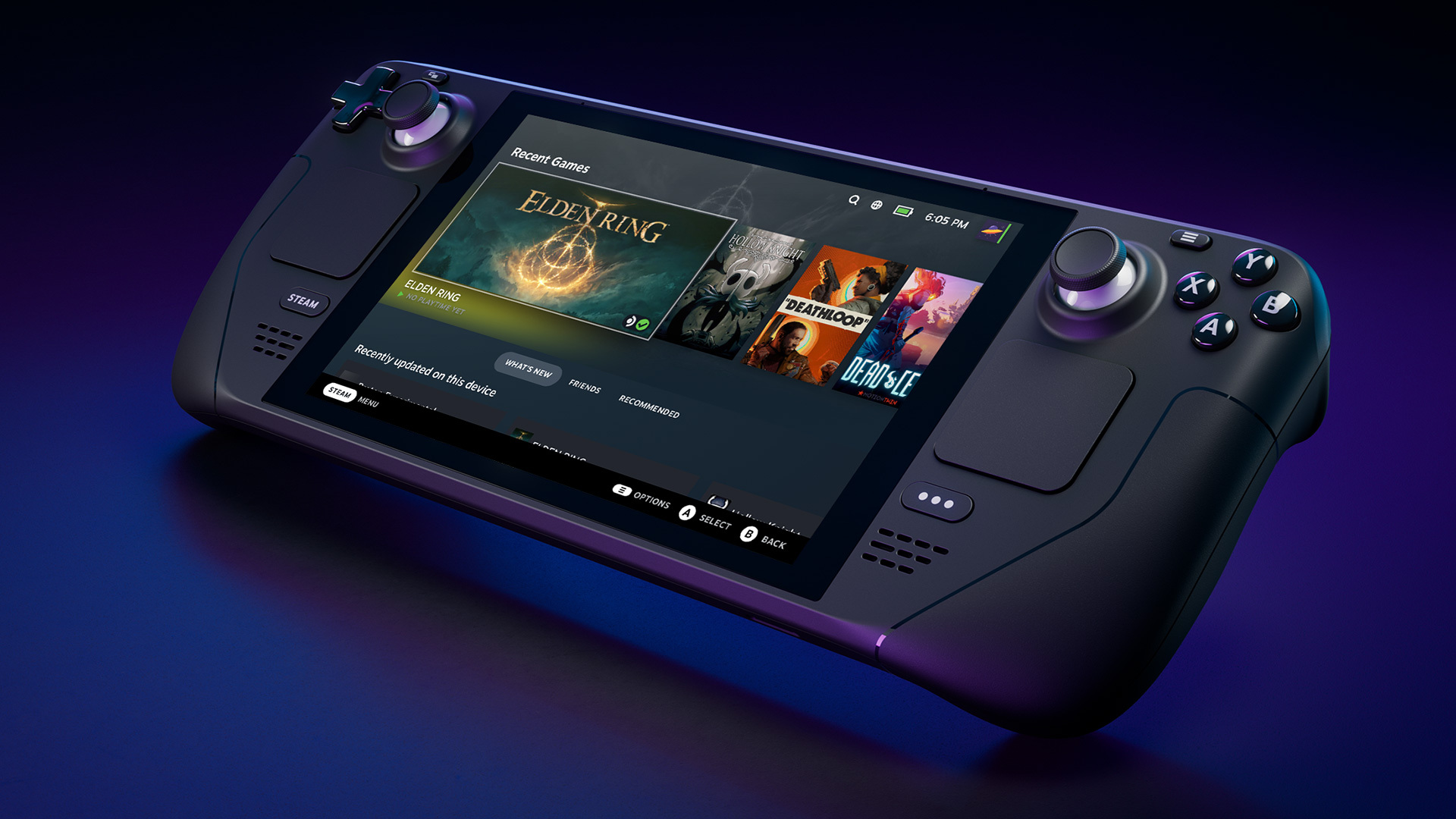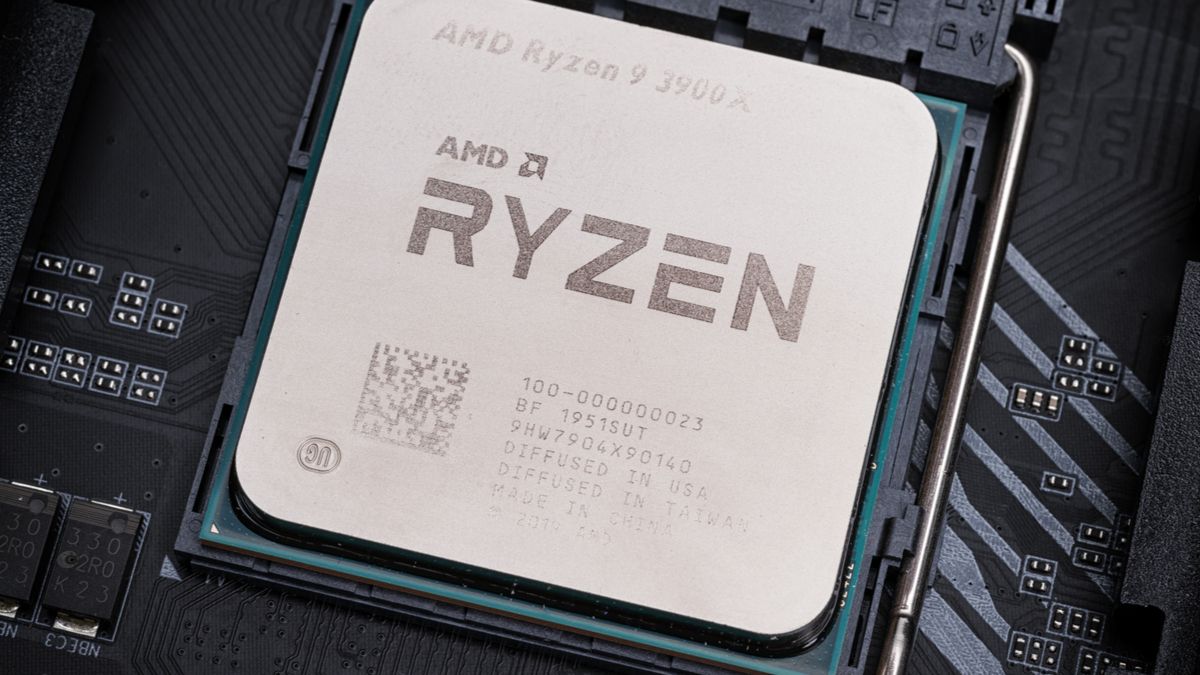Announcement
Collapse
No announcement yet.
Steam On Linux Marketshare Hits New Multi-Year High, AMD Powering ~40% Of Linux Gaming Systems
Collapse
X
-
Originally posted by birdie View PostNo, they won't and can't. Their handheld is a special piece of hardware and Valve will be a sole purveyor of their own highly specialized Linux distribution. No, they will not use "default" Arch Linux which is a console oriented distro for power users.
You really do need to go and read the specification sheet. From a kernel point of view the Valve hardware is not that specialised.
 New information regarding AMD Van Gogh line of Ryzen APUs powered by RDNA 2 & Zen 2 for ultra-low power notebooks has been leaked.
New information regarding AMD Van Gogh line of Ryzen APUs powered by RDNA 2 & Zen 2 for ultra-low power notebooks has been leaked.
There are notebooks in production with the same APU with the same amount of ram and same type of ram.
The reality here Valve taken the parts you would make a netbook with and made a hand held shaped console device and valve is not the only party who is doing this. Due to device not being that specialist of hardware its not needing a highly specialised Linux distribution. Valve is just need to tweak a few defaults and have new enough kernel and gpu drivers.
Yes your xbox, playstations... you normal game consoles from you common vendors have specialist chips CPU/GPU unique to them in there. Valve steamdeck is not this. Valve also is not locking the boot so you are free to install other Linux distributions on the steamdeck.
Arch install process is designed to be console driven. But many users operate Arch graphically. Yes a lot of arch users are not heavy console users. https://github.com/MatMoul/archfi Yes this has lead to many projects to make arch fast and simple to install.
 OK, hear me out. Arch Linux is the best distribution for beginners who are just getting started with Linux.
OK, hear me out. Arch Linux is the best distribution for beginners who are just getting started with Linux.
The reality here is arch being power users only is not that true. The install curve is a little steep. But for a party like valve doing a steandeck being able to direct drive the install process by custom script does have its advantages. It is a bit more steep of a learning curve at the start with arch yes due to not having a graphical installer to hand hold user though the install process. After you have done the install process does Arch really behave major-ally different to any other Linux distribution the answer is no. Yes arch package manager intergrates into gnome and kde graphical package manager tools. Yes KDE discover and Gnome Add/Remove Software works with arch just the same as on any other major Linux distributions.
birdie the reality is once you are past a particular point installing the common Linux distributions more of how the distribution works graphically comes down to your choice of desktop environment than the distribution. This coming more true when you look at KDE discover and Gnome Add/Remove and notice they come with flatpak installing out box to install applications your distribution may not have.
Comment
-
There is difference between crashing (ergo being unstable) and running slightly slower so this is a terrible example, its not like Windows 11 was crashing when you ran it on an AMD CPU (it also got largely fixed 2 weeks later which is much faster than an equivalent situation in Linux especially considering how long it takes to trickle down via distributions).Originally posted by spykes View Post
And despite that they are still failing to provide a correct handling of AMD CPU even after their first patch:
https://www.tomshardware.com/uk/news...s-L3-cache-bug
"Much more stable platform" my ass Last edited by mdedetrich; 02 November 2021, 07:53 PM.
Last edited by mdedetrich; 02 November 2021, 07:53 PM.
Comment
-
That is also double sided.Originally posted by mdedetrich View PostThere is difference between crashing (ergo being unstable) and running slightly slower so this is a terrible example, its not like Windows 11 was crashing when you ran it on an AMD CPU (it also got largely fixed 2 weeks later which is much faster than an equivalent situation in Linux especially considering how long it takes to trickle down via distributions).
Distributions in the Linux world have habit of being very kernel slow in updating. This does give more time for kernels to get issues that make current issue worse detected and resolved before being dropped on general users.
The sweet spot between updating the kernel fast to get new features to the end users in timely way and not causing the end user too many problems is a hard thing.
- Likes 2
Comment
-
You're right but honestly, how many users here have been experiencing a crash of their system because of a Linux Kernel bug ? I've been using Linux for years and it never happened to me on a production system. Serious distro maintainers are doing a great job shielding us from early quircks when it could happen.Originally posted by mdedetrich View Post
There is difference between crashing (ergo being unstable) and running slightly slower so this is a terrible example, its not like Windows 11 was crashing when you ran it on an AMD CPU (it also got largely fixed 2 weeks later which is much faster than an equivalent situation in Linux especially considering how long it takes to trickle down via distributions).
Microsoft happened to release updates able to brick some users install, despite their supposed "superior" validation process.
- Likes 1
Comment
-
Despite the headline, there's no good evidence yet that Van Gogh will appear in anything not called Steam Deck, although it would be great if it became a long-term "budget 7nm APU" (replacing 14nm "Dali") as Rembrandt and later APUs use newer nodes. A $200-300 laptop with a Van Gogh quad-core would be more performance than a lot of people need.Originally posted by oiaohm View Post
Even if it is only used in the Steam Deck, it is very similar to Renoir and Rembrandt, and Linux has been getting patches for it for over a year now.
- Likes 1
Comment
-
Really? All this time spent arguing about China and Windows vs. Linux but nobody made even a passing mention of this "hurr hurr" opportunity?AMD on Linux is much more common than on Windows where Intel still has a 69% marketshare.
I guess I'll have to do it.
It's saying that macOS increased by 0.07% from 2.49% to 2.56%.Originally posted by vb_linux View PostMac goes from over 0.07% to above 2%. These numbers look suspicious.
Originally posted by birdie View PostIf no one cares, Android is Linux and you should be very happy.Originally posted by vb_linux View PostChromeOS is linux, so is Android. Android may have different APIs, so may not be relevant here.People generally talk about platforms from the perspective of their primary application ecosystems. The "Linux" people are talking about exposes Linux kernel syscalls, POSIX, and X11 or Wayland as its primary platform ABI. When talking about desktop use, people tend to narrow that further to "Linux on x86" meaning "Linux with glibc and whatever else my Steam/GOG/etc. games need on x86".Originally posted by Vistaus View PostChrome OS without the Linux apps VM is based on Gentoo, so how is that not Linux then? Even the Gentoo wiki lists it:
Android is a separate ABI, primarily intended to be accessed via Java or Kotlin, which happens to use the Linux kernel and Bionic as implementation details and encourages developers to avoid looking under the hood. That's why it'll still be Android if Google decides to rebase the Android platform on Fuchsia to get a stable driver ABI, but it will no longer contain Linux.
ChromeOS is the web platform and has a similar attitude toward under-the-hood stuff. It will also remain ChromeOS if Google rebases the platform on top of Fuchsia to get a stable driver interface.
To say otherwise would be like saying that iOS and macOS are the same thing and iPhones run macOS.
- Likes 1
Comment
-
and you are wearing tinfoil hat. amd doesn't sell videocards and doesn't sell in retail. your retail shop sets price, so if you want to look for cartel, you should start thereOriginally posted by TemplarGR View PostAMD does it as well. There are no shortages. They are manipulating the market, they have formed a cartel and governments do nothing about it.
Comment



Comment